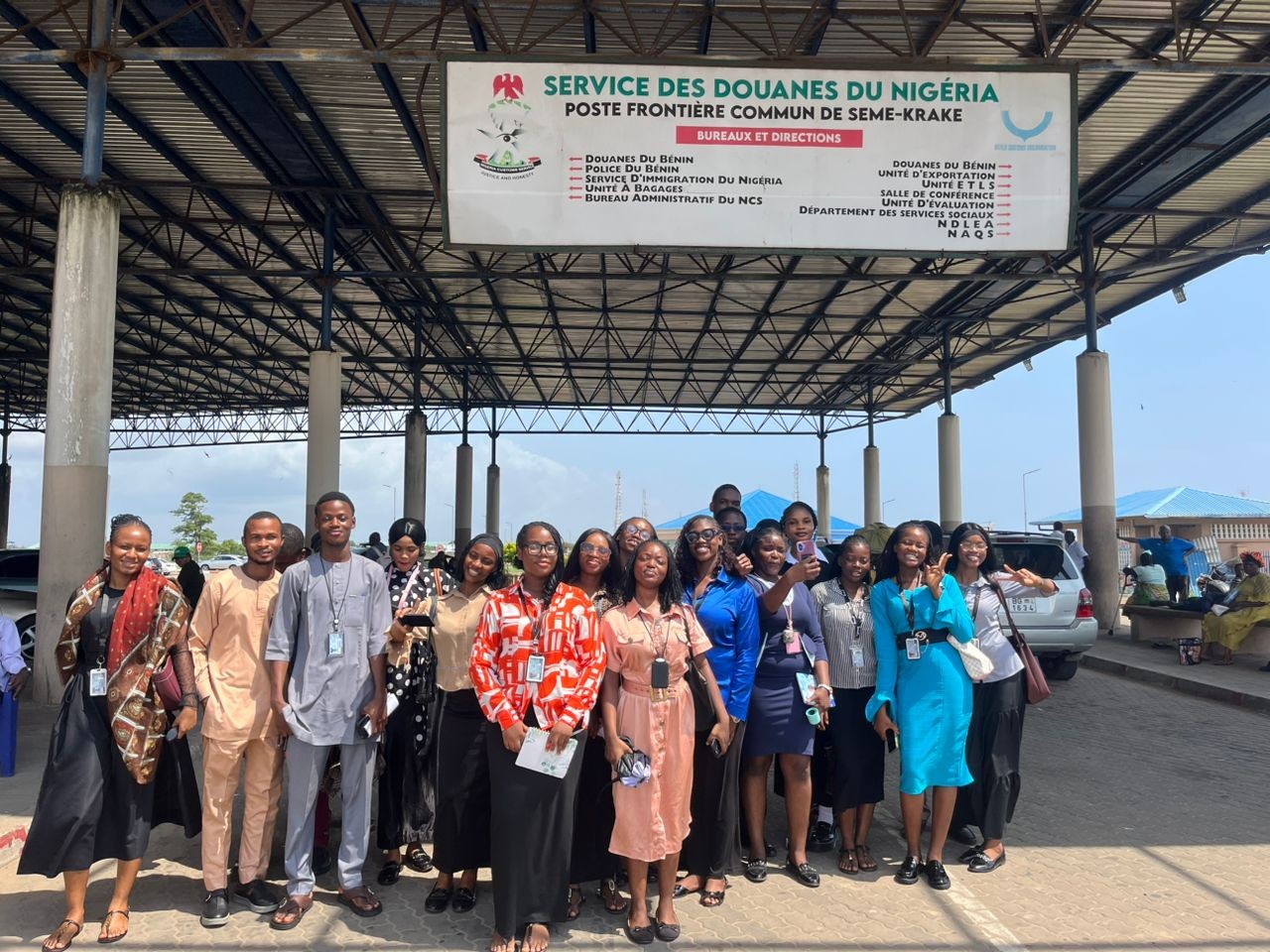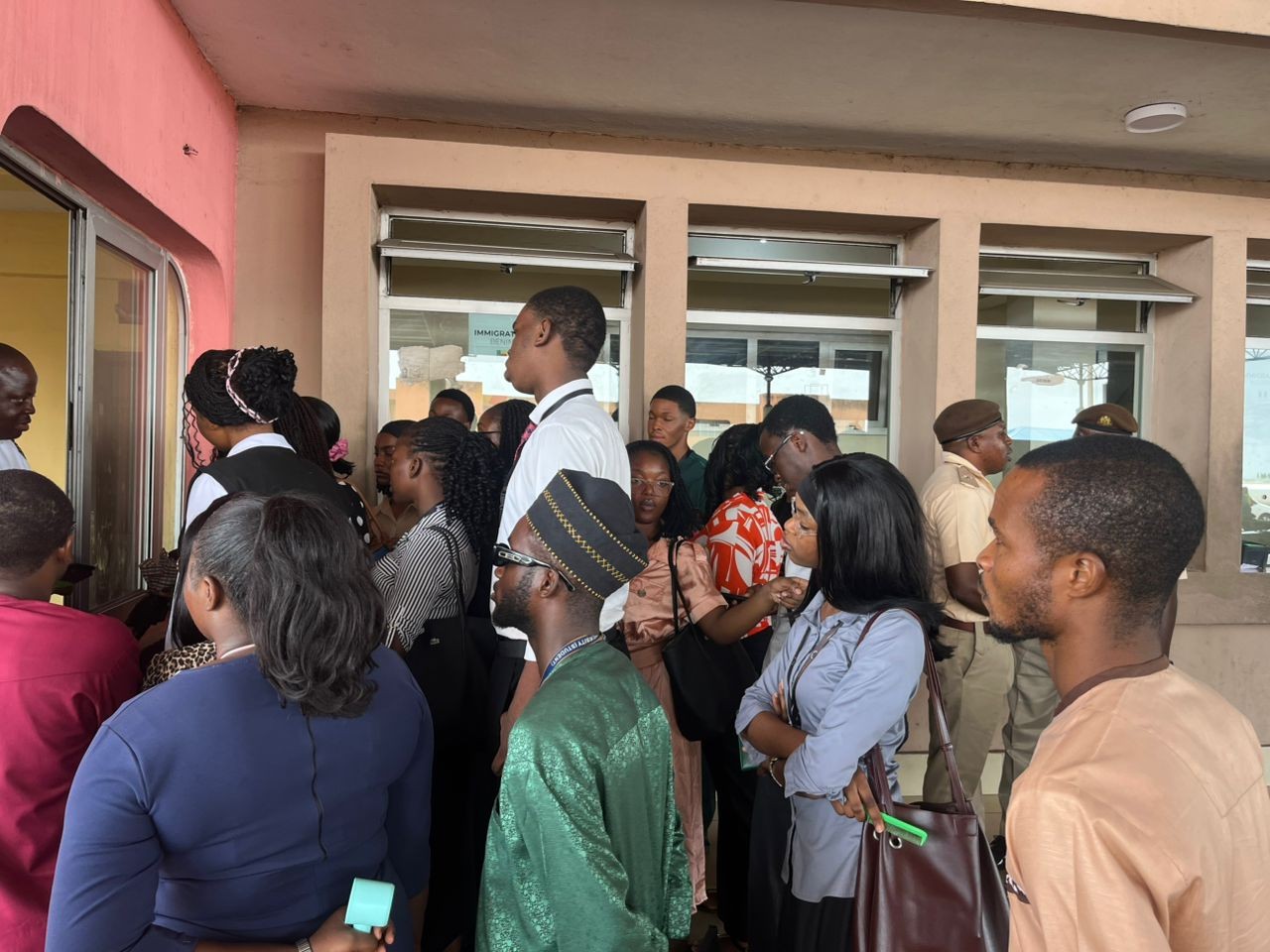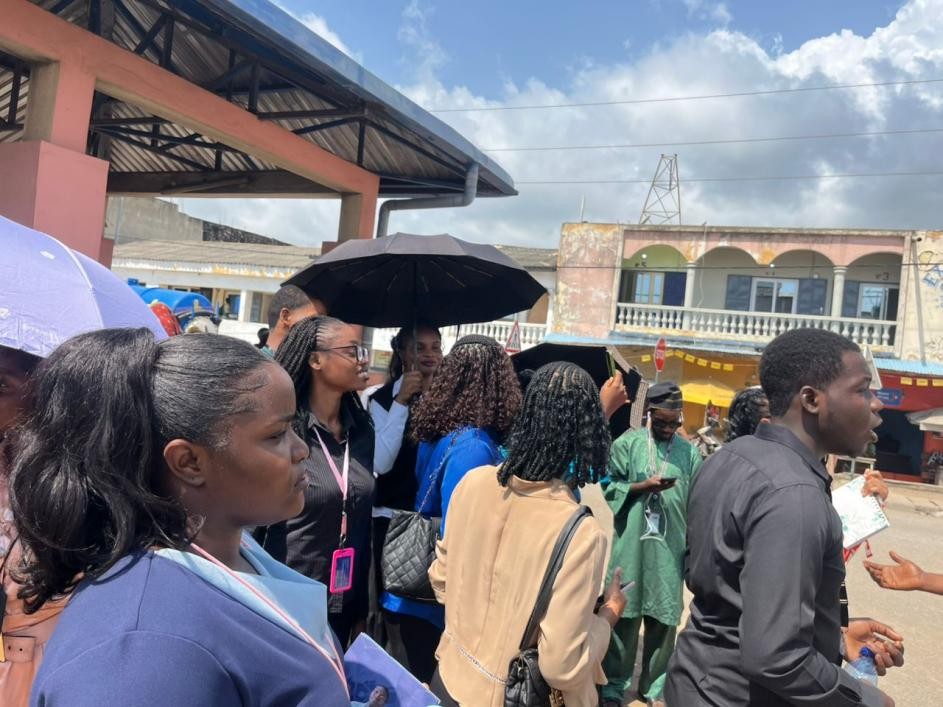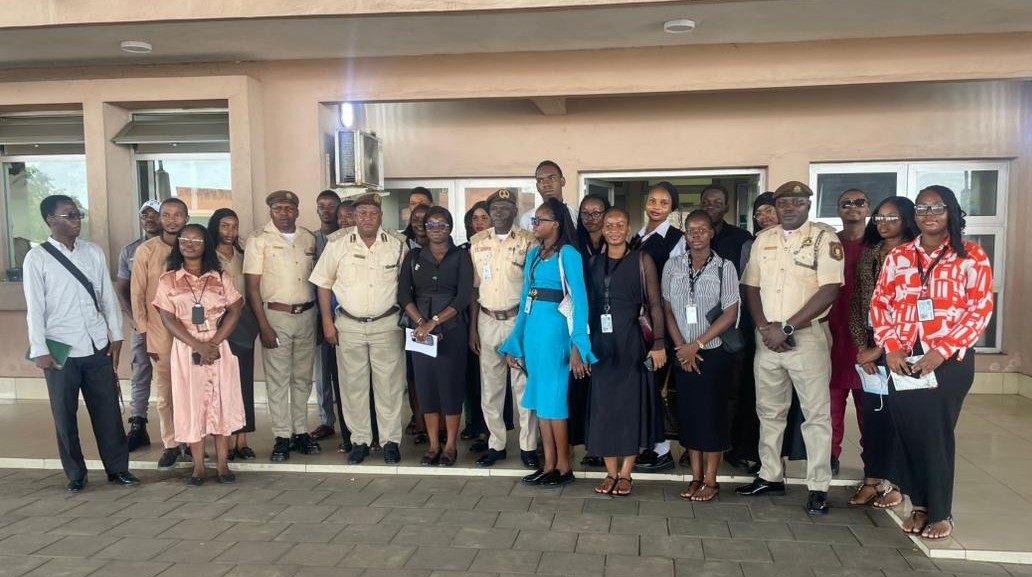| Adebayo Daniel Feranmi

Introduction
The Department of Political Science and Public Administration, Babcock University undertook an academic trip to the Nigeria Immigration Service (NIS), Seme Border Command, on November 19, 2025. The visit was designed to provide students with practical exposure to trans-border migration dynamics, border security operations, and the institutional role of the NIS in Nigeria’s migration governance system. A total of 20 students participated in the excursion.
Objectives of the Academic trip
The major objectives of the field trip were to:
- Offer students a first-hand understanding of border management operations.
- Deepen their knowledge of the Nigeria Immigration Service and its responsibilities in migration governance.
- Explore the security challenges prevalent at one of Nigeria’s busiest international land borders.
- Provide students with exposure to professional career opportunities and foster academic networking.
Itinerary and Activities
The Academic trip took place at the Nigeria Immigration Service, Seme Border Command, located at the Joint Border Post, Badagry West, Lagos State.
The visit began with a warm welcome from the Public Relations Officer (PRO), Superintendent Isaac O., who expressed the Command’s delight in receiving the students. He emphasized the importance of academic engagement in strengthening national understanding of border management.
An interactive session was held, coordinated by the PRO, the Personal Assistant to the Comptroller, and other officers. Discussions covered:
- An overview of the Nigeria Immigration Service and its border management responsibilities
- The nexus between migration and national security
- The ECOWAS Free Movement Protocol and its implications for Nigeria’s border security landscape
The students actively engaged in the discussions, asking thoughtful questions that demonstrated their ability to connect theoretical learning with practical realities.
A brief meeting with the Comptroller of the Command followed. He spoke extensively on regular and irregular migration, urging students to be responsible citizens and to pursue migration legally where desired.
The excursion concluded with a guided tour of the border facilities. Students observed how the MIDAS system is used to capture travellers’ information, gained insights into the issuance of Nigerian e-visas, and interacted with officers at the health station as well as immigration personnel from both Nigeria and the Republic of Benin. A major highlight of the trip was walking across the border into the Republic of Benin an experience that brought border studies to life.
Conclusion
This academic excursion offered invaluable practical insights that cannot be fully acquired within the classroom. Students experienced first-hand the complexities of border management, the realities of migration flows, and the practical operations of the Nigeria Immigration Service. The visit reinforced the relevance of experiential learning in political science and underscored the need for continuous engagement with institutions shaping national and regional governance. The department encourages more field trips of this nature to further enrich academic learning and professional development.
PICTURE GALLERY


